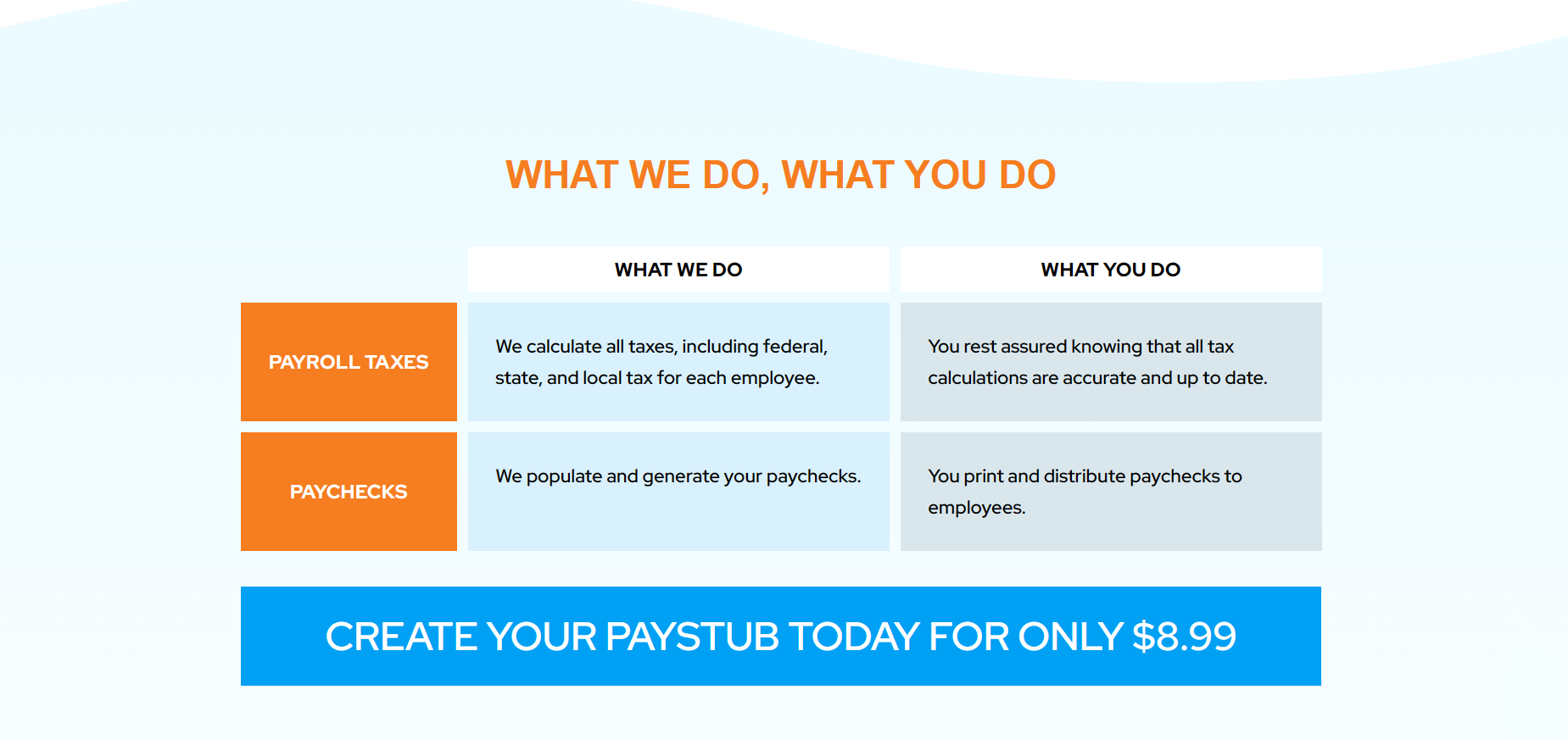
3 Strategies to Help You Achieve Your Career Aspirations
As a business, it is always important to set goals. In doing so, you will most likely discover that it is not always so easy to see those goals accomplished....
Feb 09, 2023One of the deductions you'll often notice is ‘employee Medicare on pay stub'. Essentially, it represents the Medicare tax, a federal payroll tax that funds a portion of the Medicare Program.

One of the deductions you'll often notice is ‘employee Medicare on pay stub'. Essentially, it represents the Medicare tax, a federal payroll tax that funds a portion of the Medicare Program. Based on our first hand experience, it provides health insurance for individuals over 65 and some younger people with disabilities. The amount deducted from an employee's pay stubs for salary is calculated based on a percentage of their gross wages and is automatically withheld by employers. In this article, we at Check Stub Maker will explore the meaning of the Medicare tax, how it's calculated, and its implications for your financial planning and compliance. Let's dive in! What this article covers:
In laymans terms, ‘Medicare' on your paycheck is a health insurance tax that's deducated from your earnings and paid to the Medicare Program. You'll notice it when you see your pay stubs online or receive them in the mail.
Our findings show that the Medicare tax is a key component of your paycheck deductions. Essentially, this tax is part of the Federal Insurance Contributions Act (FICA) taxes , alongside Social Security tax. The Medicare tax is automatically withheld from your wages, with both employees and employers contributing equally to the tax. The simplicity of this process ensures that employees contribute to the Medicare Program throughout their working life, providing a foundation for their healthcare needs in later years. When you make paystubs with us at Check Stub Maker, you can get an accurate picture of your Medicare deductions and how they impact your earnings.
The funds collected from the Medicare tax are allocated specifically to the Medicare Program. Our investigation demonstrated that this initiative is a critical part of the U.S. healthcare system, offering coverage to millions of older Americans and those with certain disabilities. The tax ensures the sustainability and availability of Medicare, making it a vital contribution for the long-term health security of many.
Employers and employees alike are currently being taxed 1.45% each for the standard Medicare tax. However, there is an extra 0.9% tax on wages over $200,000, bringing the maximum tax to 2.35% for employees or 3.8% in total when combined with the employer's portion.
High-income earners faces an additional Medicare tax of 0.9%. This will increase the Medicare tax rate to a total of 2.35%, which applies to individuals earning above a certain threshold. This means that employees with higher incomes (often in the realms of $200,000 and higher earned annually) will contribute a bit more to Medicare. This additional tax is a step towards ensuring that the Medicare system remains well-funded and capable of serving its beneficiaries. At Check Stub Maker, we believe in empowering our clients with knowledge about these deductions, ensuring clarity and compliance in payroll processing. This is especially helpful for employees who have a company won't give pay stubs . 
For self-employed individuals, the Medicare tax takes on a slightly different form. Unlike traditional employees with an employer, our research indicates that self-employed people (freelancers and independent contractors) are responsible for the entire Medicare tax. This is because they're considered both the employer and the employee in this scenario. Self-employed individuals pay both the employer and employee portion, meaning they will pay 2.9% on total earnings, and an additional 0.9% on earnings over $200,000. This means they might pay a total Medicare tax rate of up to 3.8%. With that said, you can still deduct the employer portion of the tax by calculating your adjusted gross income when filing your taxes. This structure ensures that self-employed individuals also contribute to the Medicare Program, albeit in a different manner to conventional employees. If you can't find paystub , you'll be able to consistently keep track of all your Medicare deductions and benefits with our trusted pay stub creator at Check Stub Maker.
Next, we'll explore how Medicare deductions ultimately affect the earnings you receive in your paycheck.
A Medicare deduction on your paycheck signifies your contribution to the Medicare Program. Drawing from our experience, this deduction is a standard part of payroll taxes. It's automatically calculated based on your gross income and is essential for funding the healthcare needs of older and younger Americans with disabilities. This deduction is a mandatory contribution, ensuring nation-wide that everyone plays a part in supporting this vital social initiative. When you create pay stubs with us at Check Stub Maker, you'll notice a Medicare deduction reflected there as well. 
As per our expertise, Medicare taxes aren't typically charged on most forms of investment income. However, certain high-income individuals may be subject to the Net Investment Income Tax (NIIT) , which can include a Medicare tax component. This tax applies to investment income when certain income thresholds are exceeded (usually $250,000 or higher) ensuring that individuals earning more contribute their fair share to the Medicare system.
If your employer didn't withhold Social Security and Medicare taxes on your wages, it's a serious issue that needs to be addressed. In such cases, it's important to first discuss the matter with your employer. Based on our observations, your employer will need to give you and the Social Security Administration (SSA) an amended W-2 containing your taxable FICA earnings which weren't properly withheld. If this occurs, you should contact your employer immediately to correct the issue. If your employer failed to withhold your Medicare taxes and subsequently amend your W-2, and this issue is unresolved, then you need to contact the IRS directly. In this scenario, your employer may have to pay a hefty fine to the IRS or potentially face criminal charges and imprisonment. With Check Stub Maker, you can keep track of all your tax deductions with our user-friendly paystub maker so you and your employer don't end up on the wrong side of the IRS. 
In this article, we've explored the intricacies of employee Medicare on pay stub, providing clarity on what this deduction means, its significance, and various scenarios related to Medicare taxes. Understanding these deductions as well as check hours and pay stubs is crucial for financial planning and ensuring compliance with tax obligations. Whether you're an employer or a self-employed individual, our tools are tailored to help you with looking up pay stub and meet your payroll needs. So, what are you waiting for? Join us at Check Stub Maker today and simplify your payroll management with our stellar paycheck stub maker ! If you want to learn more, why not check out these articles below:

As a business, it is always important to set goals. In doing so, you will most likely discover that it is not always so easy to see those goals accomplished....
Feb 09, 2023
As a small business owner, efficiency and cost savings are likely at the top of your priority list. Managing your day-to-day operations while trying to innov...
Apr 06, 2023
Time is money and money is time when it comes to your business. Today, employers are accounting for and calculating every expense so that can squeeze the mos...
Mar 09, 2015